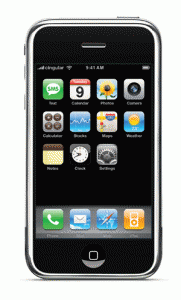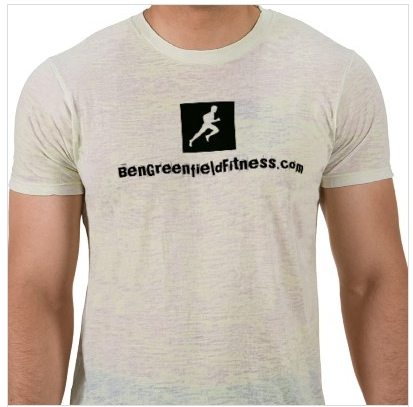June 29, 2011
Click here for the full written transcript of this podcast episode.
In this June 29, 2011 free audio episode: The Perfect Health diet, training for triathlon, eating for a healthy kidney, do endurance athletes live longer?, using a run-walk strategy, man-boobs, coconut oil, and the problem with a gluten-free diet.
Remember, if you have any trouble listening, downloading, or transferring to your mp3 player just e-mail [email protected] And don't forget to leave the podcast a ranking in iTunes – it only takes 2 minutes of your time and helps grow our healthy community! Just click here to go to our iTunes page and leave feedback.
Featured Topic: “If You Could Eat Fat All Day, Would You?”
The “Perfect Health Diet” book claims to have the four steps to renewed health, youthful vitality and long life. But what is the Perfect Health Diet? In this interview, I talk to author Paul Jaminet, and ask him the following questions about the relatively high fat and unique diet contained in the “Perfect Health Diet” book.
In your book, you list several reasons you believe a 20-65-15 carb-fat-protein ratio to be ideal…what are those reasons?
Isn't glucose the body's primary fuel?
What about people who are exercising like an Ironman athlete? Can they really eat that much fat, and have you seen this done?
Why do athletes think that eating more protein helps them to add muscle?
In your book, you list what you consider to be the four most dangerous foods. What are they, and why are they dangerous?
In your book, you say that you eat “conventional supermarket meats”. Does that mean you don't eat organic, grass fed meat, and if not, why?
In your book, you list vegetables as a fat source. Can you explain how that works?
You say that coconut oil leads to a naturally slim waist. How?
Why do you recommend people supplement with high dose iodine?
Why do you encourage long ketogenic fasts?
…And much more!
—————————————————–
Special Announcements:
-New! Ben Greenfield's Shape21 Lean Body Manual is now on Facebook as an instantly downloadable app. Get access to the first seven days of Shape21 on Facebook for free by clicking here.
-Click here to donate $1 to keep this podcast going!
-November 13: Come party with Ben in Jamaica! Jamaica Triathlon has a 20% discount code to register! Use code BGREENJAMTRI when you register at http://www.rosehalltriathlon.com.
-Ben Greenfield's free seminar “Eating For Endurance” now available for viewing. Learn about proper endurance nutrition. This is a great class for anyone preparing for a long distance event; trail runners, triathletes, adventure racers, cyclists, paddlers, and epic hikers…set yourself up for success by eating smart! Click here to get access now.
-BenGreenfieldFitness Inner Circle is now just $1 for a 14 Day Sneak Peek! Click here to join now.
– Get insider VIP tips and discounts from Ben – conveniently delivered directly to your phone! Just complete the information below…
| First Name | |
| Last Name | |
| Cell # (1+area code) | |
Listener Q&A:
====================================== [contact-form 3 “AskBen”] ======================================
Craig has a call in question about swimming, cycling and running all in one day during triathlon training.
Mario asks: I like to listen to music and podcasts, is there a set of headphones you would recommend for use both indoors in the gym and outdoors. I especially hate when they snag and rip out of ears, what do you use?
In my response to Mario, I recommend Yurbuds.
Alan asks: I eat low carb (not much processed foods/sugars) but my father is having kidney issues (doctor can not explain it but kidney function is down to like 50%) and is being told he can not eat much in the way of protien (like 30 grams/day) or potassium. he is also being told to eat everything i have learned is bad and will lead to weight gain and insulin issues such as white bread. he is also on blood pressure medications, etc. this is certainly beyond me and the doctors/nutritionists are advising and do not seem concerned about what seems to be an extremely unhealthy diet. do you have any thoughts on what he could do or where to look for better advice?
Sam asks: I just read this article. What do you make of it. Are Tour de France cyclists exceptions to the rules, or how does this assessment compare to yours? These cyclists are surely putting their bodies through considerably more stress than any AGer. On the other hand, their nutrition and rest/work cycles may be more controlled than an AGer. Did the time period have anything to do with it (Gatorade was not invented yet!)?
http://www.wired.com/playbook/2011/06/myth-too-much-exercise/
Craig asks: Jeff Galloway's philosophy of Run-Walk-Run has helped me in runs. Could this apply to Triathlon (at least the bike and run legs)?
In my response to Craig, I recommend he watch the Bobby Mcghee video interview series at EndurancePlanet.com.
Andree asks: Beer gut. Is there really such a thing?
Anonymous asks: My whole life I have had lumps, or nodes of tissue under my nipples. I am a 32 year old male and have never had any issues with this and am in great health, however, what are these and is there a way to make them go away?
In my response, I refer to Get-Fit Guy's man-boobs episode.
Chuck asks: I've heard that taking coconut oil can “increase your metabolism up to 48%” over 14 hours (not sure exactly on the time). Is this true? Also, what I'm more interested in, is that I've heard it can increase energy? Is this true, and if so, how much coconut oil should I take to accomplish this? Would it be a good idea to incorporate some before a workout?
Tony asks: Having been newly diagnosed with Irritable Bowel Syndrome and having experimented with a gluten free regime positively, I'm now struggling with blood sugar highs and lows, I'm concerned that the relatively high gi foods I'm now eating such as rice and potatoes are causing these issues. Any tips on minimizing these probs would be gratefully received.
——————————————–
Remember, if you have any trouble listening, downloading, or transferring to your mp3 player just e-mail [email protected] And don't forget to leave the podcast a ranking in iTunes – it only takes 2 minutes of your time and helps grow our healthy community! Just click here to go to our iTunes page and leave feedback.
Brand new – get insider VIP tips and discounts from Ben – conveniently delivered directly to your phone! Just complete the information below…
| First Name | |
| Last Name | |
| Cell # (1+area code): | |
Did you know…you can get the new BenGreenfieldFitness.com t-shirt in any design and any price when you click here.
Here is the front…

And here is the back…

Click here to get the new BenGreenfieldFitness shirt, in whatever design and price you choose!





Hi Ben,
I just subscribed to your premium access podcasts and still cant seem to find this podcast to watch. Any help on that?
Thanks
hey ben, i just went for an easy 10 mile run in the mountains and my HR monitor shows i burned 1300 calories. is it wrong? i thought it was pretty easy for an athlete to burn 1000 calories/ hour at a medium intensity. paul states that 1000/ day is a lot. how many calories do you burn in a workout?
1000 calories an hour you'd have to be going REALLY hard (or be really obese). Running is more typically 500-700/hr…
Ben, I’d look forward to seeing your guide. However, it seems like Joe Friehl and Loren Cordain have already put out a pretty good resource for those interested in The Paleo Diet for Athletes. I appreciated that book for athletes. Additionally, I found both the Paleo Solution by Robb Wolfe and Why We Get Fat and What to Do About It by Gary Taubes to be absolute page turners for anyone just generally interested in losing weight and being healthier.
Hey Ben! Would love to donate to your podcast, but am wondering if I can just use a credit card instead of Paypal?
Yes, just use this link and enter the "quantity" of $1 donations you want to make: http://www.marketerschoice.com/SecureCart/SecureC…
Awesome! Done!
Thought-provoking cool insights about matching my carb intake to my exercise intensity level. i.e. more intensity, more carbs. I'm running regular easy paced runs and swims now exclusively, no intervals or speedwork. There's really no need to have a majority of my meals be carb centric. I've found that less carbs, less gluten, and weight totally drops off me without trying. I think people that excercise at lower intensities and still keep a majority of their meals carb-heavy can't lose weight b/c their body never needs to tap into their fat stores. Great stuff as usual, Ben. Thanks.
Ben arent you worried that you are going to give people thyroid issues with this higher fat stuff.. I understand that there is science behind it and the paleo/wapf/low carb theories make sense for the average person. But for endurance athletes who are already prone to cortisol issues, it seems like low carb diets are suboptimal. If low fat diets, training fastest, intermittent fasting, etc. are so beneficial then why don't of the top endurance athletes do it. Are they not aware of the science? Doubtful…
Can you explain why you would be concerned about thyroid issues? Regarding your second question, top endurance athletes do this stuff. They're way more geeked out on fasting, diets, weighing food, etc. than the rest of us.
I could be wrong but im pretty sure its well accepted that low carb diets have a negative impact on thyroid health.. T3, which affects metabolism, heart rate, body temperature, among other things is decreased on a low carb diet.. (i can post the science if you want) you add endurance exercise which causes cortisol to skyrocket and it seems to me like you have an ideal situation for hypothyroidism. I know that IF works for Martin and other bodybuilders, but they are not exposed to high cortisol from a long run or long bike ride the way endurance athletes are. It seems to me like this is where there is a conflict between weight loss in general and and optimal endurance training… And as for top endurance athletes, I guess I am mistaken. I know that they are geeked out on weighing food, removing gluten, etc. , but I was saying that I don't think they do intermittent fasting and low carb. If they do, then I am mistaken, but considering their sponsors, considering their tweets, and considering all the video clips and stuff that I have seen, I have a hard time believing that many top athletes eat low carb and IF.. Look forward to your response Ben
Hi Payam. I'm guessing that the idea here is that the low-carb diet can inhibit the liver's conversion of T4 to T3. But A) the liver isn't the only place where conversion takes place; B) even if T3 levels are lower, I haven't seen any evidence that lowered T3 equates to measurable lowering in metabolic rate. A number of studies have compared the effect of low-carb and high-carb diets on metabolism and energy expenditure, and there is no significant difference in metabolic rate. I'd be curious with the research that you've seen if T3 levels were lowered to a clinically concerning significance. Hopefully Paul Jaminet can come comment on this as well.
As far as the type of strategies used by athletes – YES, health conscious athletes are lowering starchy and refined carbohydrate intake in favor of higher protein and fat containing foods, and also engaging in fewer snack patterns. Just ask any of Bob Seebohar's "metabolic efficiency" coached athletes – he works with some very talented and successful individuals.